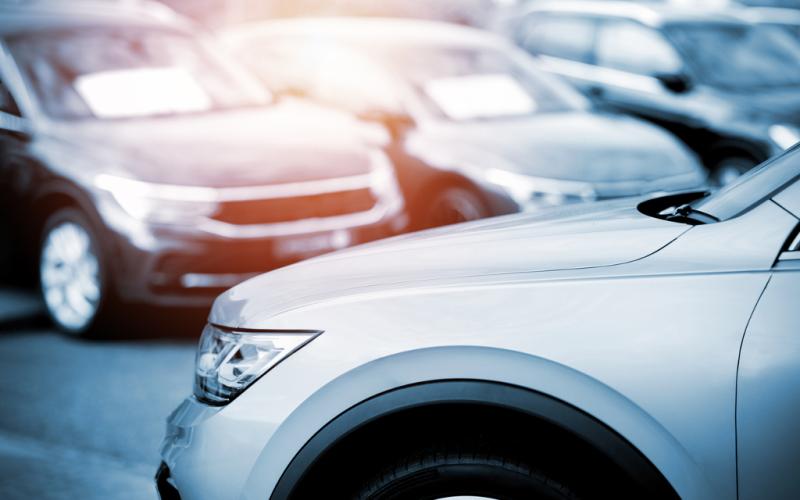Are Some Cars Safer Than Others? Understanding Vehicle Safety Features and Seeking Legal Guidance from a Car Accident Lawyer

When it comes to choosing a car, safety is a top concern for most drivers. However, with the wide range of vehicles available on the market, it's important to understand whether some cars are inherently safer than others. In this informative blog post, we will explore some of the factors contributing to vehicle safety, including advanced safety features, crash test ratings, and overall design. We will also discuss how these elements can impact the outcome of car accidents and the importance of seeking legal guidance from a car accident lawyer to protect your rights and seek rightful compensation if you have been involved in a collision. So, join us on this journey as we delve into this comprehensive topic by reading on!
Crash Test Ratings and Safety Standards
Crash test ratings provided by organizations such as the National Highway Traffic Safety Administration (NHTSA) and the Insurance Institute for Highway Safety (IIHS) play a vital role in evaluating the safety of different car models. These ratings are based on rigorous testing and the evaluation of a vehicle's performance in simulated crash scenarios. Cars that receive high ratings demonstrate better protection for occupants in various crash scenarios, including frontal, side, and rollover accidents. When considering a vehicle purchase, it's wise to review crash test ratings and choose models that have performed well in these tests.
Advanced Safety Features
Modern vehicles are equipped with various advanced safety features designed to reduce the risk of accidents and minimize the severity of injuries. These features include but are not limited to:
- Antilock Braking System (ABS): ABS prevents the wheels from locking up during sudden braking, enabling the driver to maintain steering control and avoid collisions.
- Electronic Stability Control (ESC): ESC helps drivers maintain control of the vehicle during skids or loss of traction, reducing the risk of rollovers and other types of accidents.
- Forward Collision Warning (FCW): FCW systems use sensors to detect potential front-end collisions and provide visual or audible alerts to the driver, allowing them to take evasive action.
- Lane Departure Warning (LDW) and Lane Keeping Assist (LKA): LDW alerts the driver if the vehicle drifts out of its lane without signalling, while LKA helps steer the car back into the lane if necessary.
- Adaptive Cruise Control (ACC): ACC adjusts the vehicle's speed to maintain a safe following distance from the car ahead, reducing the risk of rear-end collisions.
- Blind Spot Detection (BSD): BSD systems use sensors to detect vehicles in the driver's blind spots and provide alerts, helping to prevent dangerous lane-change accidents.
- Rearview Cameras and Parking Sensors: These features assist drivers in maneuvering their vehicles safely by providing a clear view of obstacles and assisting with parking.
It's important to consider the availability and effectiveness of these safety features when choosing a car, as they can significantly enhance occupant safety and reduce the likelihood of accidents.
Vehicle Design and Structural Integrity
Vehicle design and structural integrity play a crucial role in crashworthiness—the ability of a car to protect occupants in the event of an accident. Cars with robust safety structures, reinforced passenger compartments, and crumple zones that absorb impact energy are generally considered safer. These design elements help to distribute crash forces away from the occupants and minimize the risk of severe injuries.
Seeking Legal Guidance from a Car Accident Lawyer
While vehicle safety features are crucial in reducing the risk of accidents and minimizing injuries, accidents can still happen due to various factors beyond your control. If you have been involved in a car accident, seeking legal guidance from a car accident lawyer is essential to protect your rights and pursue rightful compensation.
A knowledgeable car accident lawyer will thoroughly assess the details of your case, gather evidence, and navigate through complex legal processes to build a strong claim on your behalf. They will understand the implications of vehicle safety features and crash test ratings in establishing liability and ensuring you receive fair compensation for medical expenses, lost wages, pain and suffering, and other damages resulting from the accident.
Conclusion
While some cars may incorporate advanced safety features, crash test ratings, and robust vehicle design, no vehicle can entirely eliminate the risk of accidents. That's why it is important to consider these factors when choosing a car, as they significantly contribute to occupant safety. However, if you find yourself involved in an accident, the guidance and knowledge of a car accident lawyer becomes crucial. They will leverage their legal expertise to protect your rights, navigate the legal complexities, and ensure you receive the compensation you deserve. So remember! Prioritize your safety on the road, and in the unfortunate event of a collision, always consult a car accident lawyer to advocate for your rights and well-being.
More to Read:
Previous Posts:









